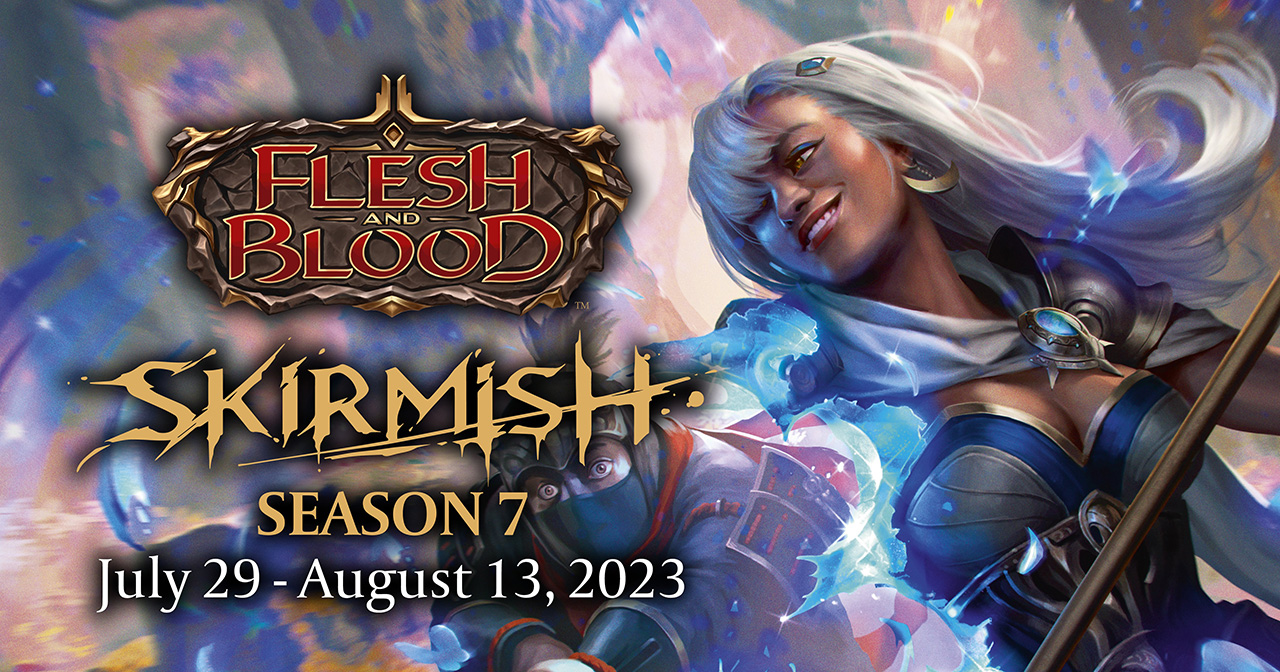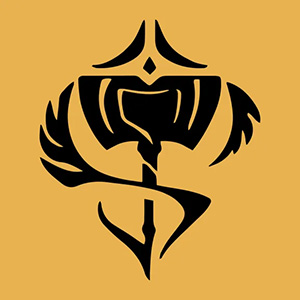
Reminders for Skirmish Season 7
July 26, 2023
It’s almost time for Skirmish season, but this season is a little different from usual. We begin this announcement with a few notes about judging at Casual REL as well as a few notes about the changes happening during this Skirmish season!

While judges are not required, we hope that TOs and Judges use this opportunity to give newer judges some additional experience officiating events in a casual environment. In casual environments, judges should expect to act in a customer service role, focusing on equity and lighthearted, friendly competition.
What this means in practice is that judges should focus on fixing games rather than assigning penalties. There are no Warnings or Intellect Penalties at Casual REL; minor infractions can be handled by fixing the game state and educating players on the infraction in a way to prevent repeat infractions. In many cases, the fix for a Hidden Card Error or Gameplay Error is punishing enough to deter further infractions, though repeat offenders may still have their play upgraded to a Match Loss when necessary. These major infractions should be applied with a Match Loss or Disqualification, though only as a last resort to preserve the safety and integrity of the tournament.

For this Skirmish season, there are a few changes that make it different from previous seasons; Blitz rules have temporarily changed, and Blitz Preconstructed has been added as a valid format.
Note that the Blitz rules are in effect ONLY for this Skirmish Season, and only for Skirmish events. For the Skirmish period, all Blitz Skirmish events have the following changes:
- Players will submit a decklist that includes 1 young hero and up to 52 cards (an extra card compared to the current Blitz format). Like Classic Constructed, these 52 slots can contain a mix of cards that go in your main deck (deck cards), or cards you can equip/that exist in your inventory (arena cards).
- At the start of the game, players reveal their heroes simultaneously, decide who is going first, then each player presents to their opponent a shuffled main deck of at least 40 cards, plus any weapons and equipment they want to start the game with. Any non-presented cards reside in player inventories.
- Players then reveal their equipment, draw up, and play some Flesh and Blood!
Note that because these changes only apply to Skirmish events, players may become confused as to the legality of their deck in Armory events. All Armory and Play Anywhere events during this period that use the Blitz format are still using the previously established Blitz rules, with a sideboard of 11 equipment, 52 card deck including hero, and 40 card main deck. Judges should ensure that a store properly communicates to their playerbase about these Blitz changes ahead of time, to ensure that no player brings the wrong deck to Skirmish.
For Blitz Preconstructed Events, please note that stores are required to announce whether to use History Pack 1 decks or Outsiders decks for this event. Stores should provide the decks as part of the entry fee for the event, though stores may, at their discretion, allow players to bring their own copies of these decks to these events. In the event that they do, judges should validate these decks. Decklists of each Outsiders and History Pack 1 Blitz Preconstructed deck are located here; the list provided must exactly match a list in the link.
Finally, note that LSS requires the TO to record the hero played by their top 8 competitors for constructed events. While the Hero Assignment feature is available to all players to report their hero, it is not required of them; TOs may encourage players to do so, but ultimately must manually report the top 8 competitors at minimum in GEM. A guide on using the Hero Assignment feature in GEM is located here.

